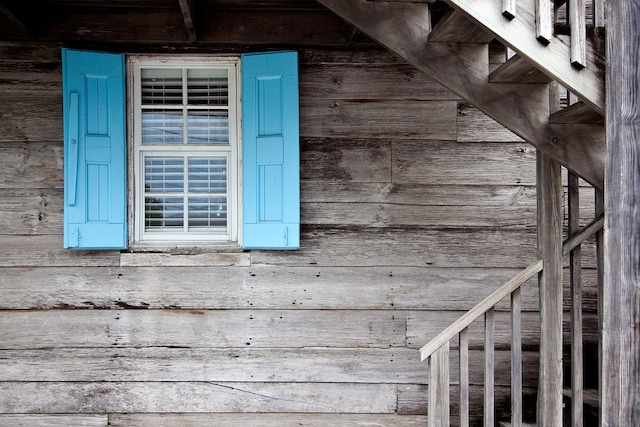For many divorcing couples, deciding what happens to the family home is far from easy. Beyond being a valuable asset, it often carries strong emotional ties, which can make negotiations over a sale particularly complex. Even when both parties agree to put the property on the market, they must still navigate key decisions such as timing, valuation, and future living arrangements.
While dividing assets is a fundamental feature of separation, this article focuses on the practical and legal aspects of selling the house in a divorce. Here, we’ll explore when you should do it, options for reluctant sellers, and more.
When to Sell the House in a Divorce: Timing and Strategy
One of the first questions divorcing couples face is whether to sell the house before, during, or after their divorce is finalised. If you’re in this position, much will depend upon your finances, levels of cooperation, and, vitally, the best interests of any children. There’s no recommended choice here, as each outcome offers advantages and possible complications.
To summarise the options available to you:
- Selling Before Divorce is Finalised: This can simplify financial proceedings, as the proceeds can be split accordingly and included in the financial settlement. However, selling the house before divorce will only be practical if both spouses are willing and able to collaborate about shared finances and the key terms of the sale.
- Selling During Divorce Proceedings: This may be necessary if neither party wants — or can afford — to maintain the property going forward. It may also be necessary if the court orders its sale to achieve a fair outcome for the whole family.
- Selling the House After Divorce is Finalised: Some couples might agree to delay selling the house, particularly when children are involved and they want to spare them the added disruption of relocating. This arrangement may be formalised through a Mesher order, allowing one party to remain in the home until a specified point in time. Ordinarily, this means one spouse will agree to stay in the family home until the youngest child turns 18. In families without children, the equivalent is a Martin order, which delays the sale if one spouse doesn’t immediately need the funds.
As is often the case in family law, there’s no ‘right’ approach when it comes to selling the house in a divorce. The option you settle on will depend upon financial circumstances, the willingness of both parties to cooperate, and whether an alternative solution (such as a buyout) is feasible.
What If One Party Wants to Keep the House?
It is common for one spouse to want to keep the family home, particularly when children are involved. Divorce can be an emotionally testing process for families, so uprooting completely is typically a last resort. However, staying put with reduced income is not always financially realistic, so some spouses could consider options like buy outs and offsetting.
- Buying Out the Other Party: If one party wishes to stay in the house, they could buy out the other’s share for fair (market) value. This typically requires either refinancing the mortgage or offsetting the value of the home against other valuable matrimonial assets, such as businesses, overseas properties, and valuables.
- Mortgage Considerations: Most lenders will not approve a mortgage transfer unless the remaining spouse earns sufficient income to meet repayments independently. If refinancing is not possible, selling may be the only option.
- Court Intervention: If one party refuses to sell — or buy the other out — the court can order a sale or impose their own arrangement to ensure fairness.
Ultimately, the choices at your disposal will depend upon the bigger financial picture. If you are divorcing and would like to know more about your options, a solicitor can safeguard your best interests by providing advice tailored to your situation.
Handling Disputes When Selling the House in a Divorce
Disagreements over selling the house are common, especially when emotions run high. The sums involved sometimes create differences of opinion over the valuation — and these disputes can extend to the choice of estate agent, pre-sale home improvements, and who eventually gets what share. If both parties agree, the process is more straightforward. However, some disputes may demand legal intervention.
When separating couples cannot agree on selling the house, the following legal avenues are available:
- Mediation: Mediators are neutral third parties. They can help facilitate a compromise, which is often a more cost-effective and less adversarial approach.
- Court Orders for Sale: If mediation fails, an application can be made to the court for a financial remedy. The court will consider factors such as financial needs, the welfare of children, and each party’s contributions.
- Enforcement of a Sale: If one party refuses to cooperate, the court can appoint a person to sign documents on their behalf, ensuring the sale proceeds.
Practical and Emotional Considerations
Selling a family home during a divorce is not just a financial transaction — it is a major life change that can have a strong emotional impact. However, the process can be much less stressful and time-consuming if both parties agree to put aside any animosity for the sake of their children and personal wellbeing.
If you’re struggling with this, there is help available. Some family lawyers work closely with third parties like mediators, counsellors, and financial planners — providing the right level of support when you need it.
Our advice for separating couples is to prioritise the following:
- Manage Emotional Stress: Seeking professional support, such as counselling, can help navigate the emotional impact of not only losing the home but adapting to the upheaval that comes with the end of a relationship.
- Minimise Conflict: Maintaining clear, open communication and committing towards a fair resolution can cut timescales, reduce stress, and minimise expense. Going to court should be viewed as a last resort when the more constructive options have been exhausted.
- Support Children: Moving house can be particularly difficult for children. Parents should aim to provide stability and reassurance throughout the transition.
- Plan for the Future: Once the house is sold, both parties will need to find new accommodation. This should be factored into the financial settlement to ensure that everyone has long-term stability and nobody is at a financial disadvantage.
Considering Selling the House in a Divorce? Lowry Legal Can Help
Selling a house during a divorce can be one of the most challenging aspects of the whole process. While emotions often run high, approaching the situation with a clear understanding of the legal framework and practical considerations can help both parties move forward. Seeking legal advice early on can also ensure that the decisions you make are both fair and informed.
A specialist in high net worth divorces, Lowry Legal knows that separation can be challenging. That’s why we take the time to understand your circumstances before ensuring that you have the right people around you throughout. Our holistic service means we can seamlessly cover every angle, from legal expertise to family mediators and on to financial planning. This gives clients the peace of mind that their best interests are being served at every stage.
Contact us now to arrange your first consultation.
Request a Callback
Leave a few details below and one of our team will be in touch to discuss how we can support you with your legal needs. Please note that we cannot offer Legal aid.














